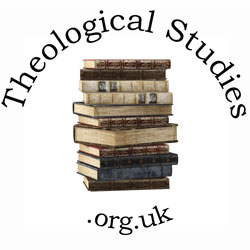Godfrey Rolles Driver 1892-1975)
F.F. Bruce
Theology on the Web helps over 2.5 million people every year to find high quality theological resources that will help to equip them to serve God and to know Him better (2 Timothy 2:15). Like other websites that provide free services, it is dependent on donations to enable it to grow and develop and only 0.004% of visitors currently do so. If you would like to support this site, please use one of the options to the right of this message.
The Witness 105, No. 1255 (July. 1975): 266-267.
[Reproduced
by permission]
[p.424]
Sir Godfrey Driver, who died on 22nd April of this year in his eighty-third year, spent the whole of his active career in academic work, apart from the two world wars. In the former he served with the British Expeditionary Force; in the latter he served in the Middle East and at the Ministry of Information. It was while he was at the Ministry of Information that I first met him: he was looking for a likely person to send to Palestine to make sure that the Jews of that country maintained an anti-Nazi line (quite seriously!).
The foundations of his learning were laid in classical studies: he became classical tutor in Magdalen College, Oxford, in 1919, but after some years he was appointed University Lecturer, then Reader and ultimately Professor of Semitic Philology. He might indeed have filled with distinction the Regius Chair of Hebrew (as his father, S. R. Driver, did for many years), but in those days that Chair was attached to a canonry of Christchurch, and G. R. Driver was a layman and therefore ineligible. He had that kind of integrity which would have scorned the idea of taking orders as a means to an end.
He was an outstanding scholar and teacher, and produced an impressive succession of learned works, but he came most prominently into the public eye first because of his outspoken views on the Dead Sea Scrolls and then as Joint Director of the New English Bible. As for the Scrolls, he thought that many of his colleagues rushed too quickly to inadequately supported conclusions, and was not afraid to espouse a minority opinion—or rather, two minority opinions, one after the other, for he was not the man to shrink from changing his mind in the light of fresh evidence. Indeed, his capacity for changing his mind made him the despair of editors, for he had the habit of rewriting his articles at proof stage (an expensive habit nowadays).
In his direction of the Old Testament translation for the New English Bible he gave unsparingly of his learning, his time and his energy. He probably stamped more of his personal qualities on the Old Testament than his fellow-Director, C. H. Dodd, did on the New. It was a great boon for the Old Testament panel to have him as convener, with his unrivalled mastery of Semitic philology, although it was a boon for which a necessary price had to be paid. His brilliant mind was constantly envisaging (in the light of other Semitic languages) new meanings for Hebrew roots and forms. In his 'Comments and Assessments, in The Witness for 1973 (especially in the March issue) Alan Millard drew attention to some of these. He indicated that an explanatory volume was being prepared which would set out the. reason for these innovations, but in fact the explanatory volume which did appear in 1973 (The Hebrew Text of the Old Testament, by L. H. Brockington) was a disappointment from this point of view. The one man who could have given us such a volume was Sir Godfrey himself. On the last occasion when he addressed the Society for Old Testament Study (January 1971) he read a magnifient paper on this very subject, and received a standing ovation when he had finished; but he was too frail by that time to give us the book for which we may now have to wait in vain. Sir Godfrey was probably rather too prone to 'chance his arm' in making novel suggestions: in a private version that would not have mattered so much, but greater restraint would have been desirable in a version for general use appearing under the sponsorship of the principal British Churches. It may well be that when the NEB is next revised some of the less probable of his innovations will disappear. The need for greater discipline in this field was emphasized by James Barr in his Comparative Philology and the Text of the Old Testament, which was published in 1968, too late to be of effective use to the NEB translators.
He was a man of ruthless honesty, but as free from malice as he was from hypocrisy. Both on the Scrolls and on Bible translation he said things at times on which journalists eagerly seized, but he played to no gallery. A far better assessment of his worth than I can give might be given by any of his former students.
[p.267]
They owed a great deal to him, not only while they sat at his feet but in later life. I have sat on appointment committees often enough to know how valiantly he would always put his best foot forward in support of the claims of men and women who had been his pupils. He maintained his scholarly activity to the end, in spite of failing health: the last time I saw him, in October 1974, he was consulting references in the library of the Oriental Institute at Oxford. In what I believe to be his own rendering of Job 1. 1, he was a man 'who feared God and set his face against wrongdoing'.









